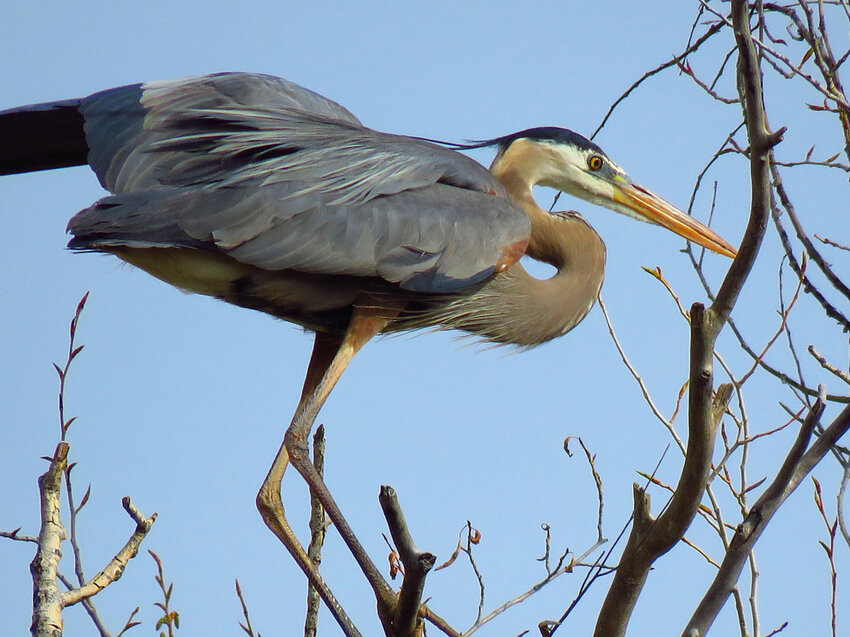
Photo courtesy Charles Martinez
This week’s Bird of the Week, compliments of the Weminuche Audubon Society and Audubon Rockies, is the great blue heron.
In the shallow waters of ponds, lakes, wetlands, bogs and slow-moving rivers, this stately heron can be found standing perfectly still or slowly wading, always on the lookout for food that comes within striking distance. Fish, amphibians, reptiles, small mammals, insects and other birds are all fair game to be stabbed by its dagger-like bill.
With good night vision, it can watch day and night and spends up to 90 percent of waking hours in stealthy hunting.
A common bird in North America, this heron has benefited from the recovery of beaver populations which create swamps and wet meadow habitats for foraging. The great blue is the largest heron in North America, standing 4 feet tall on long legs that allow it to wade in depths from a few inches up to 2 feet. Its wingspan is around 6 feet, but hollow bones and lightweight feathers keep its weight close to only 5 pounds. Both sexes are grayish blue with shaggy plumes on the neck, and black and white stripes on the head. Special “powder down” breast feathers provide a powder when crushed that is spread during preening and provides protection to plumage from slime and oils.
Great blue herons nest in colonies known as rookeries. Platform stick nests are usually located in trees, and enlarged and re-used for several years. Young may spend up to three months at the nest being fed by both parents. On average, 70 percent of the nestlings die within the first year of hatching. At one time, gunshot was a leading cause of mortality.
Today, threats include viruses and parasites, chemical pollutants, predation and entanglement in fishing line and other trash. Conflicts occur when recreational uses bring humans too close to breeding herons and cause them to abandon the nest.
This year a bald eagle pair nested in the heron rookery at Lake Capote, forcing the herons to abandon it.
For information on events, visit www.weminucheaudubon.org and www.facebook.com/weminucheaudubon/.